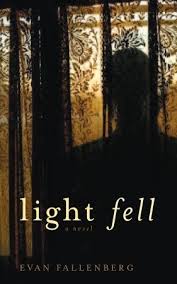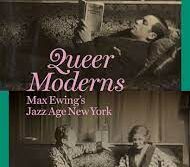 Light Fell
Light Fell
by Evan Fallenberg
Soho Press. 240 pages, $22.
EVAN FALLENBERG’S Light Fell is a slight, disarming novel about a gay man’s effort to reconcile with his five sons on his fiftieth birthday. Told episodically and in flashbacks, the story introduces Joseph Licht, a man who met and fell in love with Rabbi Yoel Rosenzweig and left his family to go live with his lover. And while things did not work out as planned, Joseph hopes, years later, to win back his sons’ love. In an effort to ensure this, he prepares a meal that he hopes will play on his children’s emotions and memories.
Fallenberg presents Joseph’s sexuality cautiously, slowly showing how he became involved with Rabbi Rosenzweig and how their relationship evolved. Upon hearing him speak at a synagogue, Joseph was taken by the rabbi’s penetrating words, which he felt spoke to his soul. When their eyes met and locked, there was an immediate attraction between them, made deeper when the rabbi invited Joseph to his home by handing him a card on which Joseph’s initials were mysteriously inscribed. This code, he explained, was “one of God’s three ways of letting people know that they are divinely suited to one another.” As the men get more intimately involved with one another, they struggle with their same-sex desires. Joseph’s awareness of his homosexuality is awakened as he’s on his way to meet the rabbi. While killing time in what turns out to be a cruising area, he trips, and, assisted by a friendly stranger, Joseph seeks refuge in a men’s room stall, where he overhears and oversees the erotic fumblings of two men with their “blunt erections, like exclamation points.” Suddenly, desires aroused, Joseph is able to reveal his attraction to the thick-fingered rabbi, one that goes beyond just the intellectual and emotional attachment they’ve shared. Even as a sexual aspect develops, the two men consider how their relationship tests their souls and how their love will play out. Surprisingly, just as Joseph and Yoel are about to leave their wives and families to move in together, Rabbi Rosenzweig commits suicide. The effect this has on Joseph is life-changing, and it’s one he shares with his sons at the birthday dinner. While this novel would make for a good short story or novella, Fallenberg expands his narrative to include various additional episodes and subplots, such as Joseph’s ex-wife discovering that she may be pregnant. While these episodes might have enhanced the novel, ultimately they just draw it out. For example, in one scene Joseph politely fends off the sexual advances of his doorman, while in another he’s visited by a masseur, but neither does much to advance the story. In contrast, Joseph’s efforts to hide his gay life from his children-and his concern about these efforts-offer revealing insights into his psyche. Fallenberg’s strength is his ability to craft a mesmerizing vignette. For example, he provides the back story for a minor character-Batya, the wife of Joseph’s son Gideon-and his brief description of her being sexually abused as a child is stunning. Likewise Joseph’s son Daniel recounts an equally devastating tale that not only showcases the author’s storytelling talents but also addresses issues of legacy and family history. As Light Fell concludes, Joseph considers whether his difficult choice to leave his family in order to be true to himself was the right one. It’s an interesting question, but one that Fallenberg perhaps takes too long to reach. But by the end of Light Fell, the moral of the story, which is all about shame and forgiveness, is fully apparent. Fallenberg’s novel, like Joseph’s culinary ambitions at his birthday dinner, is well-meaning but not always successful. Much of Light Fell is repetitious or mundane, until at last the book crackles to life at the family dinner. Some readers may be satisfied by the emotional tenor of this scene, while others might find themselves identifying with Joseph, who describes himself as having “the will to react, but the inability to feel.” Gary M. Kramer is the author of Independent Queer Cinema (Haworth).
____________________________________________________________________




